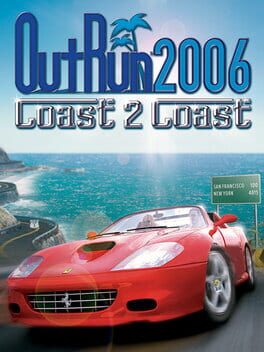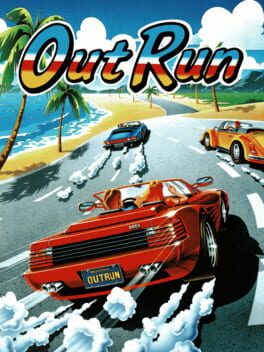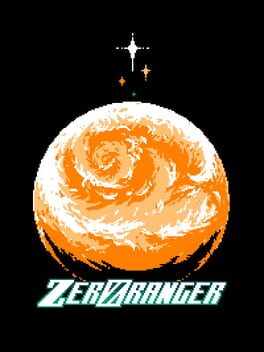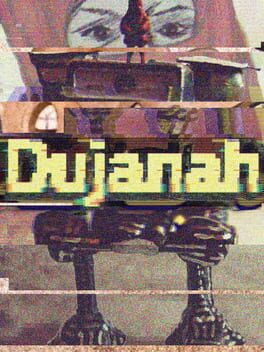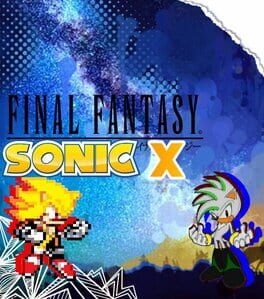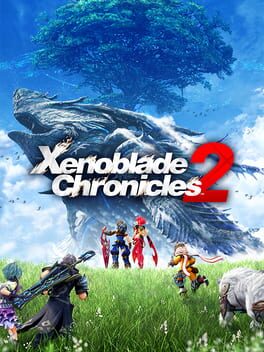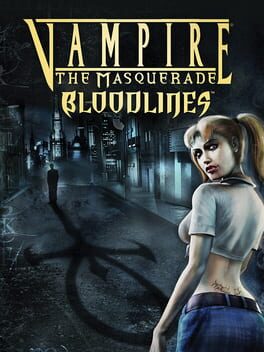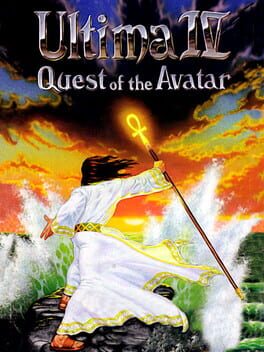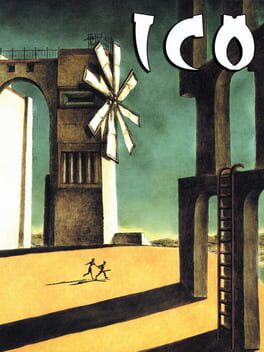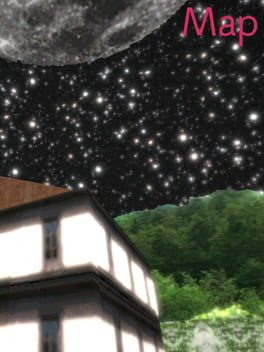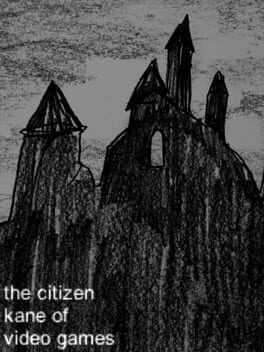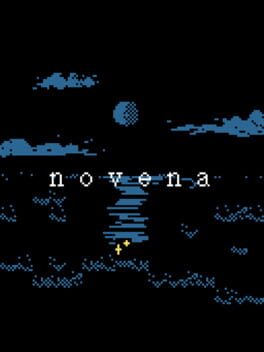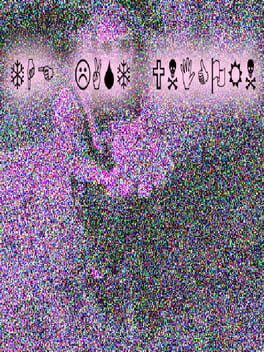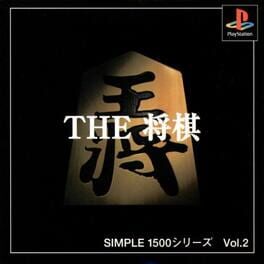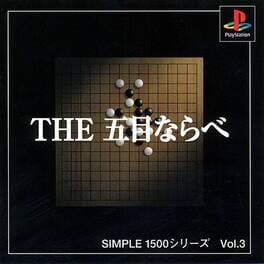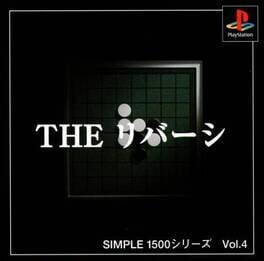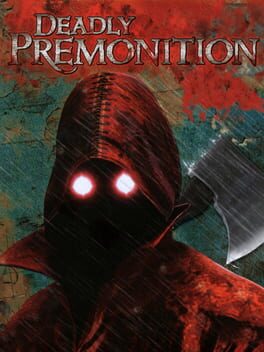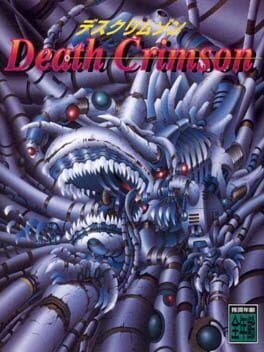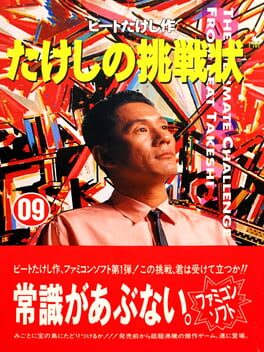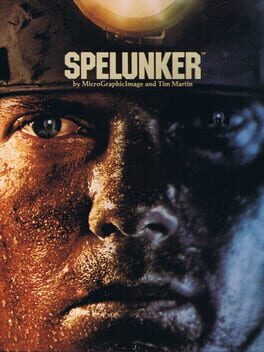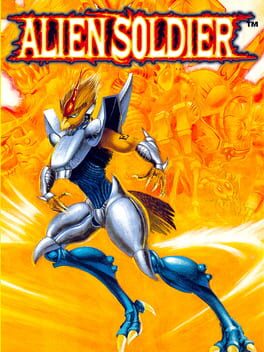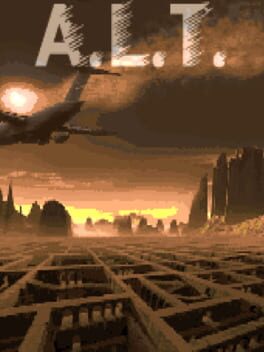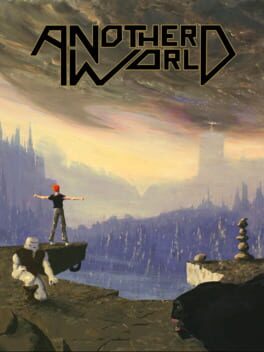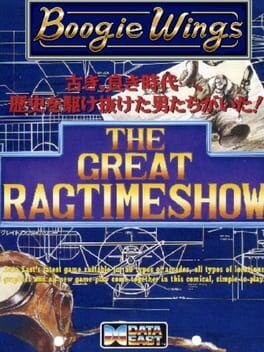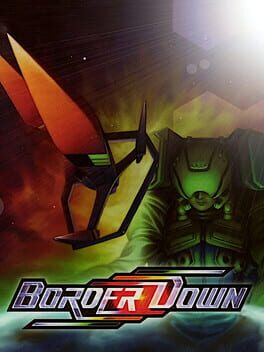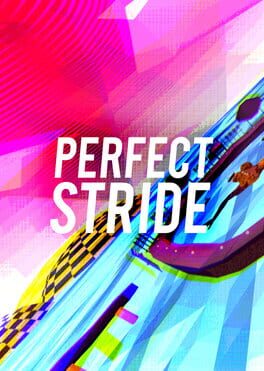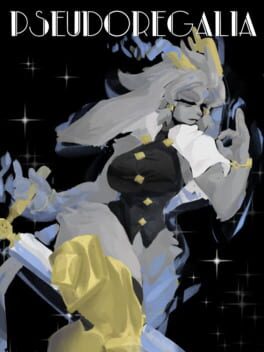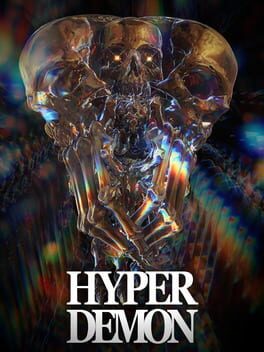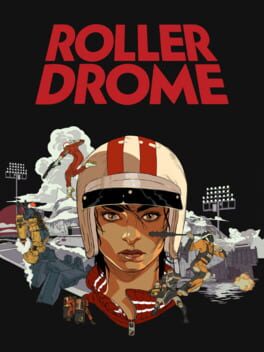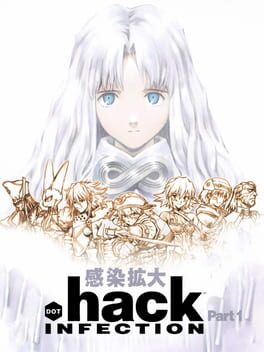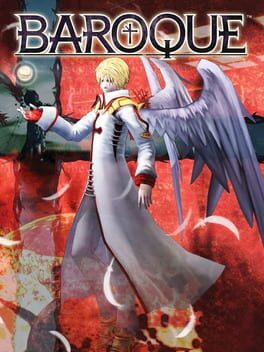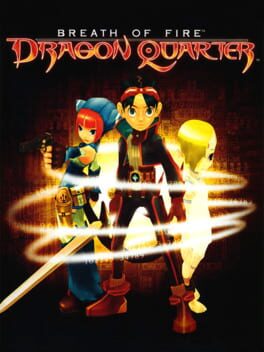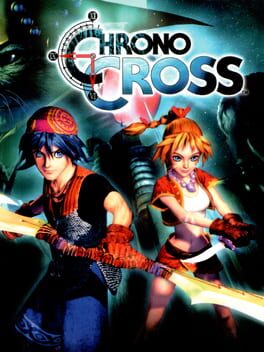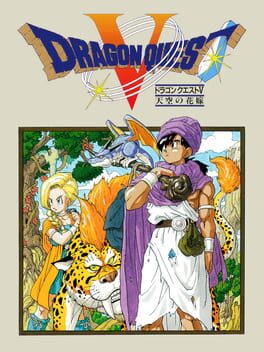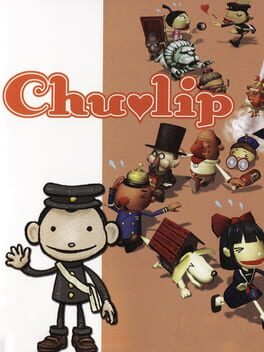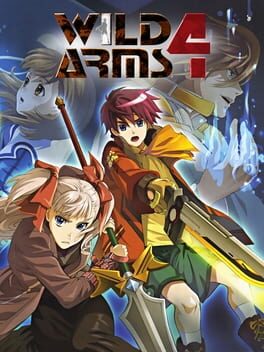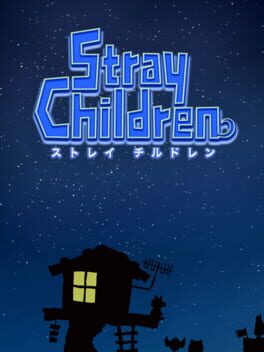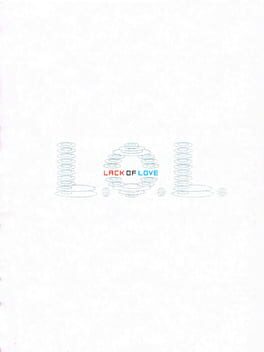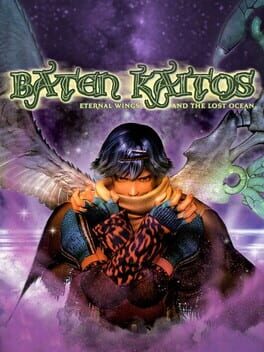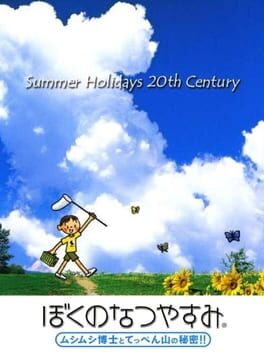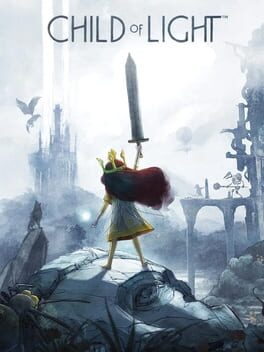Chocc
12 reviews liked by Chocc
Forza Motorsport
2023
Sendo franco, quando eu vi o marketing para esse jogo falar que tudo tinha sido feito do zero, eu fiquei instantaneamente preocupado.
Depois de jogar eu posso dizer que tal como Halo Infinite esse jogo tinha muita coisa para dar certo. Mas mais uma vez a Microsoft e suas tácticas de empregar seus prestadores de serviço por turnos de 18 meses cobra caro.
Sem eventos de Drift? Sem eventos de Drag?
Uma quantidade incontável de features estão ausentes, quebradas, ou sem melhoria. Mesmo aquelas trazidas de jogos recentes como Horizon 4 e 5 ou de FM7.
A maioria dos carros são copiados de Forza Horizon 5, e mesmo assim podem ser encontrados erros na iluminação tanto interna quanto externa dos carros, e não me deixe comentar sobre o som dos veículos, vídeos na internet cobrem melhor do que um texto essa parte.
FM2023 falha como uma continuação de FM7, e falha em honrar seus excelentes antecessores FM3 e 4.
Eu não consigo recomendar esse jogo a uma alma viva. E a Microsoft tem sorte que FM3, 4 e 6 não estão á venda por quê não haveria motivo para comprar esse péssimo jogo se esses títulos ainda estivessem a venda.
Depois de jogar eu posso dizer que tal como Halo Infinite esse jogo tinha muita coisa para dar certo. Mas mais uma vez a Microsoft e suas tácticas de empregar seus prestadores de serviço por turnos de 18 meses cobra caro.
Sem eventos de Drift? Sem eventos de Drag?
Uma quantidade incontável de features estão ausentes, quebradas, ou sem melhoria. Mesmo aquelas trazidas de jogos recentes como Horizon 4 e 5 ou de FM7.
A maioria dos carros são copiados de Forza Horizon 5, e mesmo assim podem ser encontrados erros na iluminação tanto interna quanto externa dos carros, e não me deixe comentar sobre o som dos veículos, vídeos na internet cobrem melhor do que um texto essa parte.
FM2023 falha como uma continuação de FM7, e falha em honrar seus excelentes antecessores FM3 e 4.
Eu não consigo recomendar esse jogo a uma alma viva. E a Microsoft tem sorte que FM3, 4 e 6 não estão á venda por quê não haveria motivo para comprar esse péssimo jogo se esses títulos ainda estivessem a venda.
Outrun 2 begins like the impact of a meteor, face-first at ground-zero before the ashes scatter and you are left staring at a monstrous crater for all eternity.
A visit from an ice-cream van in the form of an arcade cabinet with the blissful precision of a steering wheel has become a sweaty marathon jog at home with an analog stick. A child and their dreamlike mania sanded down to an algorithm, trapped in a straitjacket inside a red room with a black and yellow logo on the ceiling.
It is a daylong rerun of a reasonably solid sitcom playing on the TV at your nice grandma’s house, because what else is there to do?
Outrun 2 is a drunk friend at a party who's lost in the sauce and keeps rambling to everyone about their awesome big ideas they'd do if only someone gave them the money.
Maybe if Outrun 2 (3) got that money, it'd manage to get the child out of that room.
A visit from an ice-cream van in the form of an arcade cabinet with the blissful precision of a steering wheel has become a sweaty marathon jog at home with an analog stick. A child and their dreamlike mania sanded down to an algorithm, trapped in a straitjacket inside a red room with a black and yellow logo on the ceiling.
It is a daylong rerun of a reasonably solid sitcom playing on the TV at your nice grandma’s house, because what else is there to do?
Outrun 2 is a drunk friend at a party who's lost in the sauce and keeps rambling to everyone about their awesome big ideas they'd do if only someone gave them the money.
Maybe if Outrun 2 (3) got that money, it'd manage to get the child out of that room.
Killer7
2005
CW: Discussions of Transmisogyny
The common response to vulnerable niche play experiences like Video Game Feminization Hypnosis (2019), Cave Story Sex RPG 2007 (2021), and He Fucked The Girl Out of Me (2022), is mockery both for the boldness of name and of content. Video Game Feminization Hypnosis is a psychic-design-manifesto with lines like "i dont care about the "puzzles" i just wanna explore weird islands & mess with the machines" and "ive half-joked about my games being laced with estrogen but i wonder how powerful they could be. what if we could use video games to forcefem ppl all over the world" nested as hyperlinks throughout her vent towards a better girly gameworld. Written in lowercase text and using internet acronyms like 'ppl', she speaks with a casual concern for unfettered femme exploration games as a way to potentially rewrite the social code.
It has not been product tested for review, nor has either of the other 2 games mentioned. The problem here is that the culture of 'gaming' itself is unable to step beyond the bounds of product review. Franz inquires into this problem around Cave Story Sex RPG 2007
"Why do we seek to quantify something clearly very personal based on how much it resonates with us?
I think my problem is that I think people are looking at this game as they would a product. Like it needs to have some value to me, otherwise it's not "worth playing".
Nadia, Fewprime, Blood Machine, npckc, communistsister, bagenzo, and [pourpetine] (https://xrafstar.monster/games/). These are in my mind the most notable transfemme gamedevs and their relevant store pages for their work¹. It's obviously not a comprehensive list, but this is my notation for who is the most publicly notable and prolific within the scene. Notice that all of the games on these pages are free as are the 3 games I opened with at the start. That's because transfemme gamedevs more often have to make their corpus free just to get eyes. So what are gaming spaces assessing the 'worth' of a completely no strings attached free simulated experiences? I think its the fact we dare to make people uncomfortable and borrowing a modicum of their time (across all the devs I've mentioned I cant think of 1 that takes more than 3 hours to finish, usually only being around 20 minutes in length at most). My sisters have to cheapen themselves to 0 just to get your ear and its still just met with mockery, harassment, and belittlement².
Even when a transfemme game dev gets the chance of any success at all she is thrown down again. In pourpetine's Hot Allostatic Load (2015) she notes among a litany of pained observations that
"One of my abusers was sent a list of the nominees for the upcoming games festival Indiecade. Unfortunately, I was on the list. I ended up winning an award, ostensibly to recognize my feminine labor in the areas of marginalized game design—years of creating access for other people, publicizing their games, giving technical support, not to mention the games I had designed myself. Instead of solidarity from other marginalized people in my field, I was attacked."
Video Game Feminization Hypnosis beats to a much more Utopian drum. A belief that we can mesmerize people into a more pure goo out of this vindictive rut, create a games made out of love, show people feminine Exits.
I believe in all that. I also believe that my words and those of my sisters are constantly being cast a sidelong jeer of disposability. That I and my sisters are then to blame for when a mobbing happens and not the world's own biases and outrage. This world has made this all quite non-negotiable, no more playing along with the democratic cesspits and hateful comedy routines. Here's to reflecting on the play experience others treat as compost as if its the most meaningful urtexts in the world because to quote pourpetine again "Build the shittiest thing possible. Build out of trash because all i have is trash. Trash materials, trash bodies, trash brain syndrome. Build in the gaps between storms of chronic pain." trash art is my queendom.
I hope it suffocates society before it can flee to their patriarch Arks. As princess put it here 'flood the world and dilute the sludge'.
-------------------------------------------------------
1. 2 notable exceptions I know of with pay to play games by transfemme is princess/Girl Software's other games, and the cowriting of Aevee Bee on Worst Girl Games. Also key in on the fact here I'm making no judgements on individual pricing of games as a moral decision.
2. Does not remotely just happen On Backloggd³ if you think this is just a grievance I have with this site you're gravely misreading me and I urge you to slow down your social media outrage use for a bit qt~
3. Although I should not lie, social media sites are remarkably more unreliable habitats for trans people than they initially appear, this place has been a great learning experience of that in my case
The common response to vulnerable niche play experiences like Video Game Feminization Hypnosis (2019), Cave Story Sex RPG 2007 (2021), and He Fucked The Girl Out of Me (2022), is mockery both for the boldness of name and of content. Video Game Feminization Hypnosis is a psychic-design-manifesto with lines like "i dont care about the "puzzles" i just wanna explore weird islands & mess with the machines" and "ive half-joked about my games being laced with estrogen but i wonder how powerful they could be. what if we could use video games to forcefem ppl all over the world" nested as hyperlinks throughout her vent towards a better girly gameworld. Written in lowercase text and using internet acronyms like 'ppl', she speaks with a casual concern for unfettered femme exploration games as a way to potentially rewrite the social code.
It has not been product tested for review, nor has either of the other 2 games mentioned. The problem here is that the culture of 'gaming' itself is unable to step beyond the bounds of product review. Franz inquires into this problem around Cave Story Sex RPG 2007
"Why do we seek to quantify something clearly very personal based on how much it resonates with us?
I think my problem is that I think people are looking at this game as they would a product. Like it needs to have some value to me, otherwise it's not "worth playing".
Nadia, Fewprime, Blood Machine, npckc, communistsister, bagenzo, and [pourpetine] (https://xrafstar.monster/games/). These are in my mind the most notable transfemme gamedevs and their relevant store pages for their work¹. It's obviously not a comprehensive list, but this is my notation for who is the most publicly notable and prolific within the scene. Notice that all of the games on these pages are free as are the 3 games I opened with at the start. That's because transfemme gamedevs more often have to make their corpus free just to get eyes. So what are gaming spaces assessing the 'worth' of a completely no strings attached free simulated experiences? I think its the fact we dare to make people uncomfortable and borrowing a modicum of their time (across all the devs I've mentioned I cant think of 1 that takes more than 3 hours to finish, usually only being around 20 minutes in length at most). My sisters have to cheapen themselves to 0 just to get your ear and its still just met with mockery, harassment, and belittlement².
Even when a transfemme game dev gets the chance of any success at all she is thrown down again. In pourpetine's Hot Allostatic Load (2015) she notes among a litany of pained observations that
"One of my abusers was sent a list of the nominees for the upcoming games festival Indiecade. Unfortunately, I was on the list. I ended up winning an award, ostensibly to recognize my feminine labor in the areas of marginalized game design—years of creating access for other people, publicizing their games, giving technical support, not to mention the games I had designed myself. Instead of solidarity from other marginalized people in my field, I was attacked."
Video Game Feminization Hypnosis beats to a much more Utopian drum. A belief that we can mesmerize people into a more pure goo out of this vindictive rut, create a games made out of love, show people feminine Exits.
I believe in all that. I also believe that my words and those of my sisters are constantly being cast a sidelong jeer of disposability. That I and my sisters are then to blame for when a mobbing happens and not the world's own biases and outrage. This world has made this all quite non-negotiable, no more playing along with the democratic cesspits and hateful comedy routines. Here's to reflecting on the play experience others treat as compost as if its the most meaningful urtexts in the world because to quote pourpetine again "Build the shittiest thing possible. Build out of trash because all i have is trash. Trash materials, trash bodies, trash brain syndrome. Build in the gaps between storms of chronic pain." trash art is my queendom.
I hope it suffocates society before it can flee to their patriarch Arks. As princess put it here 'flood the world and dilute the sludge'.
-------------------------------------------------------
1. 2 notable exceptions I know of with pay to play games by transfemme is princess/Girl Software's other games, and the cowriting of Aevee Bee on Worst Girl Games. Also key in on the fact here I'm making no judgements on individual pricing of games as a moral decision.
2. Does not remotely just happen On Backloggd³ if you think this is just a grievance I have with this site you're gravely misreading me and I urge you to slow down your social media outrage use for a bit qt~
3. Although I should not lie, social media sites are remarkably more unreliable habitats for trans people than they initially appear, this place has been a great learning experience of that in my case
OutRun
1986
The image of what a car represents to me changed continuously ever since I was a child. Playing with miniature vehicles felt magical not because I enjoyed the idea of driving one itself (the roaring of the engine and the complexities seen by my infant eyes in the act of turning and parking made me dread their physical form) but rather for the feeling that the spacial possibilities of their inherently small and inconsequential formats were fundamentally richer than their 'real life' counterparts, not being bound by any of the stiffness that comes with the rigid set of rules required to stipulate safety in traffic. Trying to see whether I could or could not manage to propel a bootleg Hotwheels toy to speed all the way from the kitchen to the entrance door without losing the coolness of its unstability and invencibility amidst the environment it ventured itself across was an almost primal, reflexive pleasure to dwell in throughout my childhood. That being said, just like the naive idealizations and images of life come and go without any sort of warning or consolation, the embellished picturing of that car I used to believe in so fiercely drove away from me very early on - as I became progressively ashamed to play with toys in a silly, childish struggle to create a more mature image of myself. Not because I wanted to be an adult, but because I wanted to be taken seriously by grown-ups and groups of friends alike, a naturally stubborn feeling that a lot of people might have had when they were kids. In the span of one night and countless visions, I'd lost that world I could call mine without even acknowledging it until many years later.
Deadly accidents, the unbearable stress of roundabouts and the idea of having to pay attention to multiple factors at once constituted my idea of speed, transportation, and most of all, vehicles. Speed in particular always bothered me. The rampant, cutting breeze slashing across my cheeks while my body felt so vulnerable due to the absence of inertia made me uneasy rather than excited when being driven around in a motorbike. The quickly changing nature of matter while in this state of velocity reminded me of the consequences of its possible sudden halt - crashings. In such a way I've seen happening around me and to people that I knew, the image of the car, the motorcyle, the speed and the traveling, were all perceived in my own eyes as symbols of death. I could no longer remember or even picture the joy of moving, of acting, of unpredictability and of the changing vistas remaining subservient to the stillness of the horizon even in their own seemingly never-ending implants of mirages on the sides of our eyes, burning in the realm of the subconscious. Outrun and its sucessor, Outrun 2 did not magically suck me in on its dreamscape of diegetic sounds and silly animations of bumping your car max speed on an outdoor and violently being thrown away only to come back unscathed in half a second on a first play, but God, did it eventually make me believe in it and love it as if I was a kid playing with car toys again for the first time.
First of all, there's almost no congruence between Yu Suzuki's visualization of the car and my own childish ideals about its inconsequential nature inside whatever world it ventured across - acceleration and impact could storm through any surface or background, whereas in Outrun the image of the vehicle is bound to the road and to the idea of an eternity beneath the horizon's ephemerality, consistently being attached to an infinite, pixelated diorama of the sky that morphs between moods seamlessly yet constructs the game's own very characteristic feeling throughout - excitement. The tilitating anxiety of grasping another world beyond the ticking clock that urges us to attain the next checkpoint, the demanding nature of wanting to impress your loved one with the speed that brings divinity to the showcase of those rapidly moving pictures, the slightly trembling hands as you realize you're almost finishing a run for the first time. To present us with all of these feelings, the antithesis of movement is brought upon as turns - which require you to understand the drift as a mechanic and think about the most optimal way of drifting without losing speed, and to maintain that speed while also not crashing. Its 'easy to learn, hard to master' arcade construct makes it easier for players to constantly look for better times on stages, making Outrun become this sort of comfortable space where one can dream and believe in nothing but moving forward - there are no cars to unlock, no new songs, no skins, just the wonder of discovering new landscapes and of feeling how they move beneath the blue sky. I can only imagine how much more tense the experience must've been while playing in actual arcade machines; depending on your money or on how crowded the arcade was, you only had a few opportunities to play it before somewhere else got their chance. In that regard Outrun also understands and exhales its own excitement outside of the pixel display, as an object of shared attention it is incredibly satisfactory to see someone else play it and beat it for a first time - much like the girlfriend exhibits that anticipation and expectation towards the player's performance (even making requests in Outrun 2's heart mode), there is a sunset-colored romance in the idea of sharing the joy of runnning through these roads only picturing the next view you'll see, the next gasp of surprise someone will exclaim to try to cheer you up, the idea of leaving everything else behind. For the short bursts in which I play whichever Outrun game, Yu Suzuki's Ferrari Testarossa Spider drives into my heart and completely blinds me with his own vision of driving, of seeing, of not letting the road bumps scare you and of consistently challenging you to see more each time you boot it up, of the physicality of those images burning away at the sound of Splash Wave along with my own worries. It awakens desires of sensations I constantly rejected, longing of places I've never been and of objects I'd almost always dreaded.
The game over screen of these games always stood out to me. A short bit of melancholy as the palm trees darken and the sun goes down, a calm and slightly sad song telling you "goodbye, you're always welcome here.", a powerful contrast to the otherwise constant excitement the game portrays in every corner of its universe. The horizon too has an end, just like the feelings of riding across exhilarating sceneries and of feeling loved are uninterruptedly moving and transforming through different meanings and pictures without us even realizing it. Outrun is a dreamy reminder of the worlds I could immerse myself upon as a child, and a statement that it is impossible to talk about videogames without dreaming through our ideal realities.
Deadly accidents, the unbearable stress of roundabouts and the idea of having to pay attention to multiple factors at once constituted my idea of speed, transportation, and most of all, vehicles. Speed in particular always bothered me. The rampant, cutting breeze slashing across my cheeks while my body felt so vulnerable due to the absence of inertia made me uneasy rather than excited when being driven around in a motorbike. The quickly changing nature of matter while in this state of velocity reminded me of the consequences of its possible sudden halt - crashings. In such a way I've seen happening around me and to people that I knew, the image of the car, the motorcyle, the speed and the traveling, were all perceived in my own eyes as symbols of death. I could no longer remember or even picture the joy of moving, of acting, of unpredictability and of the changing vistas remaining subservient to the stillness of the horizon even in their own seemingly never-ending implants of mirages on the sides of our eyes, burning in the realm of the subconscious. Outrun and its sucessor, Outrun 2 did not magically suck me in on its dreamscape of diegetic sounds and silly animations of bumping your car max speed on an outdoor and violently being thrown away only to come back unscathed in half a second on a first play, but God, did it eventually make me believe in it and love it as if I was a kid playing with car toys again for the first time.
First of all, there's almost no congruence between Yu Suzuki's visualization of the car and my own childish ideals about its inconsequential nature inside whatever world it ventured across - acceleration and impact could storm through any surface or background, whereas in Outrun the image of the vehicle is bound to the road and to the idea of an eternity beneath the horizon's ephemerality, consistently being attached to an infinite, pixelated diorama of the sky that morphs between moods seamlessly yet constructs the game's own very characteristic feeling throughout - excitement. The tilitating anxiety of grasping another world beyond the ticking clock that urges us to attain the next checkpoint, the demanding nature of wanting to impress your loved one with the speed that brings divinity to the showcase of those rapidly moving pictures, the slightly trembling hands as you realize you're almost finishing a run for the first time. To present us with all of these feelings, the antithesis of movement is brought upon as turns - which require you to understand the drift as a mechanic and think about the most optimal way of drifting without losing speed, and to maintain that speed while also not crashing. Its 'easy to learn, hard to master' arcade construct makes it easier for players to constantly look for better times on stages, making Outrun become this sort of comfortable space where one can dream and believe in nothing but moving forward - there are no cars to unlock, no new songs, no skins, just the wonder of discovering new landscapes and of feeling how they move beneath the blue sky. I can only imagine how much more tense the experience must've been while playing in actual arcade machines; depending on your money or on how crowded the arcade was, you only had a few opportunities to play it before somewhere else got their chance. In that regard Outrun also understands and exhales its own excitement outside of the pixel display, as an object of shared attention it is incredibly satisfactory to see someone else play it and beat it for a first time - much like the girlfriend exhibits that anticipation and expectation towards the player's performance (even making requests in Outrun 2's heart mode), there is a sunset-colored romance in the idea of sharing the joy of runnning through these roads only picturing the next view you'll see, the next gasp of surprise someone will exclaim to try to cheer you up, the idea of leaving everything else behind. For the short bursts in which I play whichever Outrun game, Yu Suzuki's Ferrari Testarossa Spider drives into my heart and completely blinds me with his own vision of driving, of seeing, of not letting the road bumps scare you and of consistently challenging you to see more each time you boot it up, of the physicality of those images burning away at the sound of Splash Wave along with my own worries. It awakens desires of sensations I constantly rejected, longing of places I've never been and of objects I'd almost always dreaded.
The game over screen of these games always stood out to me. A short bit of melancholy as the palm trees darken and the sun goes down, a calm and slightly sad song telling you "goodbye, you're always welcome here.", a powerful contrast to the otherwise constant excitement the game portrays in every corner of its universe. The horizon too has an end, just like the feelings of riding across exhilarating sceneries and of feeling loved are uninterruptedly moving and transforming through different meanings and pictures without us even realizing it. Outrun is a dreamy reminder of the worlds I could immerse myself upon as a child, and a statement that it is impossible to talk about videogames without dreaming through our ideal realities.
ZeroRanger
2018
The friction between space and hazards, action and hesitation, hope and despair, repetition and conclusion, ludo and life. To play is to feel God slipping away from your moving fingers, your grasp letting go of That which cannot be defined by words, to learn the violent dance that is performed by patience and desperation. Patterns learned not through analysis but through primal intuition; pumping blood racing not through veins but through the notes of blazing music; forget about solutions or results, it's about the Soul.
The destruction of the ship that is you, the revival through a larger-than-life sacrifice that rips the walls of space and time, the search for divinity proving useless in the face of ever-growing numbers and qualifications. The battered ship is no longer a vehicle for calamity and death, but an embryo for the spirit that allows humans to find a way out no matter how tight the space might seem, to face Despair and Erasure face-to-face, with everything at stake every day. The cycle of routine and failure mirrors that of our games and stories - the screen no longer scrolls itself for you, everything depends on your resolve to move up. To press on. To lose everything and still come back.
I have lost everything, more than once. But I will still come back.
edit: I won.
The destruction of the ship that is you, the revival through a larger-than-life sacrifice that rips the walls of space and time, the search for divinity proving useless in the face of ever-growing numbers and qualifications. The battered ship is no longer a vehicle for calamity and death, but an embryo for the spirit that allows humans to find a way out no matter how tight the space might seem, to face Despair and Erasure face-to-face, with everything at stake every day. The cycle of routine and failure mirrors that of our games and stories - the screen no longer scrolls itself for you, everything depends on your resolve to move up. To press on. To lose everything and still come back.
I have lost everything, more than once. But I will still come back.
edit: I won.
Dujanah
2017
Dujanah é uma visita ao cemitério; tanto que, o jogo começa e termina interagindo com um túmulo. É uma obra que está o tempo todo tentando desagradar, fazendo piadas com situações terríveis e colocando a diegese do jogo em xeque -- perceba que, 80% do texto se direciona ao jogador, por mais que ainda crie sentido com a jornada da protagonista.
Dujanah é um espantalho de si mesmo e experimenta diversos elementos de sua linguagem para contar uma história sobre morte; a morte de seu marido e filha, a morte daqueles que sofreram pela ocupação ocidental na região, e a morte de uma objetividade perversa que permeia as discussões sobre arte na cultura dos videogames.
Tudo está morto no jogo. Os NPCs são meras figuras de argila que representam seu passado vivido e contam suas histórias para Dujanah independente da noção metalinguística e da noção de que o player irá entender (ou não). Diversas telas e interações com o texto do jogo passaram em branco para mim -- simplesmente não precisamos entender tudo.
Várias e várias vezes eu me peguei pensando "O quão nonsense isso se apresenta? O quão absurdo, talvez pretensioso? E seu significado, qual seria?" e é muito ruim ter a sensação de que o jogo fala muito para dizer pouco; porém, essas sensações eram tão passageiras quanto as histórias daqueles que já foram. E de alguma forma, elas foram úteis para a manutenção da minha experiência, de que nada preciso entender, tudo preciso sentir. Um bom exemplo disso foi o minigame de metroidvania do jogo, no qual eu senti diversas coisas como catarse, angústia, nojo, ansiedade; e no fim, não consegui canalizar pensamentos o suficiente para tirar alguma coisa daquilo. Até que eu interagi com um NPC, uma aranha, o símbolo da luxúria no jogo, e ela me disse "e eu não sei 100% se essas escolhas interpretativas vão deixar o jogador mais informado de alguma forma", e bem, eu concordo completamente -- os temas islâmicos do jogo passaram em branco para mim, e mesmo assim, não senti que tive uma experiência incompleta.
Dujanah aproveita do "inútil" ao "desagradável" para juntar suas peças e formar essa grande colagem em forma de jogo -- os sons, os visuais, o texto, as interações -- tudo extremamente poluído e algumas vezes parecendo até um shitpost vazio ou creepypasta forçada, mas que de alguma forma, manteve meu interesse.
"É verdade que a audiência, fundamentalmente, busca se entreter, é sua natureza; portanto, ela irá encontrar entretenimento, mesmo que em lugares impróprios"
Dujanah é um espantalho de si mesmo e experimenta diversos elementos de sua linguagem para contar uma história sobre morte; a morte de seu marido e filha, a morte daqueles que sofreram pela ocupação ocidental na região, e a morte de uma objetividade perversa que permeia as discussões sobre arte na cultura dos videogames.
Tudo está morto no jogo. Os NPCs são meras figuras de argila que representam seu passado vivido e contam suas histórias para Dujanah independente da noção metalinguística e da noção de que o player irá entender (ou não). Diversas telas e interações com o texto do jogo passaram em branco para mim -- simplesmente não precisamos entender tudo.
Várias e várias vezes eu me peguei pensando "O quão nonsense isso se apresenta? O quão absurdo, talvez pretensioso? E seu significado, qual seria?" e é muito ruim ter a sensação de que o jogo fala muito para dizer pouco; porém, essas sensações eram tão passageiras quanto as histórias daqueles que já foram. E de alguma forma, elas foram úteis para a manutenção da minha experiência, de que nada preciso entender, tudo preciso sentir. Um bom exemplo disso foi o minigame de metroidvania do jogo, no qual eu senti diversas coisas como catarse, angústia, nojo, ansiedade; e no fim, não consegui canalizar pensamentos o suficiente para tirar alguma coisa daquilo. Até que eu interagi com um NPC, uma aranha, o símbolo da luxúria no jogo, e ela me disse "e eu não sei 100% se essas escolhas interpretativas vão deixar o jogador mais informado de alguma forma", e bem, eu concordo completamente -- os temas islâmicos do jogo passaram em branco para mim, e mesmo assim, não senti que tive uma experiência incompleta.
Dujanah aproveita do "inútil" ao "desagradável" para juntar suas peças e formar essa grande colagem em forma de jogo -- os sons, os visuais, o texto, as interações -- tudo extremamente poluído e algumas vezes parecendo até um shitpost vazio ou creepypasta forçada, mas que de alguma forma, manteve meu interesse.
"É verdade que a audiência, fundamentalmente, busca se entreter, é sua natureza; portanto, ela irá encontrar entretenimento, mesmo que em lugares impróprios"
Within the game's gorgeous open zones, windows of interaction with different manners of moving through the maps (using a stream of wind to get up a platform, using a fire skill to burn down vines, etc.) are often gatekept by a varied set of abilities acquired by leveling up certain attributes in favour of specific openings in the game's Affinity trees (which are unique for each Blade) --- the so called field skills are only but one of the many variables that rule how Blades you bond with will interact with traversal, combat and overall progression through the game. There is a notable contrast between the sprawling, natural and detailed zones of the setting and the slippery, awkward character movimentation through these same panoramas filled with markers and cluttering UI identifiers; an incongruity between the maximalist, megalomaniac numerical obsession of the matters in which players connect and interact with that virtual world, and the often terrain-based combat/navigation that constantly demands that you look around and look for gaps between the pixelated topography, to check if there's an unrelated enemy around who could aggro you and interrupt your chain of orbs, to topple a flying enemy and make it fall down after you make it to higher ground, to use rails, rocks or other common environment assets to cheese your way through battles by gaining distance from the enemy's aggroing and auto-attacking with a bitball or a cannon while their path is blocked by said asset, to make use of the game's many position-based Arts: these strategies are not exceptions, but constant thoughts and visualizations I had through the game's many, many encounters.
This friction between the 'artificial' and the 'pulsing', the 'constant' and the 'drifting', is what builds this game's main dialectics: in this made-up world of flamboyant designs destined to be made fun of or utilized for their visual and questionable appeal, of series of integers and technical rigidness bounding the player to a progression based on variables and array-based requirements, how do we achieve genuine connection between constructs that seem to attract inherent unseriousness and confusion? How do we break down the walls of 'artifices' between the player and the game? The answer could only be one: Rex, and his Salvager Code.
The panache and naivete of juvenile optimism, the shonen-esque confidence in all that exists and the resolve to make people smile. Within the bounds of its own artificiality and the signifiers used to construct its experience, Xenoblade Chronicles 2 somehow manages to weave a convincing force of sincerity through a world that is conducted by the forces of constants, arrays, dipping frames and uncertain dynamic resolution --- all of that which cannot be organically touched or interacted with, ends up crossing the walls of mechanicality unexplainably by the end of it all, finding expression and meaning in the most unexpected places. A boy and a girl make a promise to reach Paradise; the boy complies without knowing why, not even because of the fact she saved his life right beforehand --- for giving his life for a stranger is simply his spirit. A girl who fears her own power, shutting herself off for unspecified milennia; a boy who finds treasures in junk for a living, salvaging meaning and memories out of seamless clouds. In the friendship between Rex and Pneuma lies the game's final and most important dichotomy, the impossibility between eternity and remembrance, the way in which our selves are tied to our egos which are formed by the promises we make to each other, how one would rather die than be forgotten by the one they love and keep on going for infinity. Theirs is a relationship of light: uncertainness about oneself's purpose breed spontaneity and trust in that which shines the way forward. Shin had Metsu, Hana had Hikari; within the endless streams of lights we project when we break down the walls of artifices between us, we find identity and purpose.
In each of the game's varied landscapes, one sight tends to repeat itself: the view of Alrest's enormous World Tree, the promised spot that gives access to Paradise and God, peering at his creations above the sea of white. To find that these organic leaves sprouting from its head and that the wooden exterior of its large shell house a high-tech facility full of elevators and robot guards only intensifies the images that Alrest creates through gameplay: an ocean hiding before humanity's ruins in Morytha, the vistas of the clouds forming different shapes and patterns within the perspectives of each character, numerical catharsis and exploitation of the artifices as a means of visualizing the act of bonding and the struggle of moving forward by your own means. Connecting Arts and auto-attacks indefinitely, building up elemental spheres and breaking them with the collective power of strategized synchrony; the endless QTEs building up in the screen demanding timing and linking in this fascinating real-time turn-based system.
"I love this world because you're in it."
This friction between the 'artificial' and the 'pulsing', the 'constant' and the 'drifting', is what builds this game's main dialectics: in this made-up world of flamboyant designs destined to be made fun of or utilized for their visual and questionable appeal, of series of integers and technical rigidness bounding the player to a progression based on variables and array-based requirements, how do we achieve genuine connection between constructs that seem to attract inherent unseriousness and confusion? How do we break down the walls of 'artifices' between the player and the game? The answer could only be one: Rex, and his Salvager Code.
The panache and naivete of juvenile optimism, the shonen-esque confidence in all that exists and the resolve to make people smile. Within the bounds of its own artificiality and the signifiers used to construct its experience, Xenoblade Chronicles 2 somehow manages to weave a convincing force of sincerity through a world that is conducted by the forces of constants, arrays, dipping frames and uncertain dynamic resolution --- all of that which cannot be organically touched or interacted with, ends up crossing the walls of mechanicality unexplainably by the end of it all, finding expression and meaning in the most unexpected places. A boy and a girl make a promise to reach Paradise; the boy complies without knowing why, not even because of the fact she saved his life right beforehand --- for giving his life for a stranger is simply his spirit. A girl who fears her own power, shutting herself off for unspecified milennia; a boy who finds treasures in junk for a living, salvaging meaning and memories out of seamless clouds. In the friendship between Rex and Pneuma lies the game's final and most important dichotomy, the impossibility between eternity and remembrance, the way in which our selves are tied to our egos which are formed by the promises we make to each other, how one would rather die than be forgotten by the one they love and keep on going for infinity. Theirs is a relationship of light: uncertainness about oneself's purpose breed spontaneity and trust in that which shines the way forward. Shin had Metsu, Hana had Hikari; within the endless streams of lights we project when we break down the walls of artifices between us, we find identity and purpose.
In each of the game's varied landscapes, one sight tends to repeat itself: the view of Alrest's enormous World Tree, the promised spot that gives access to Paradise and God, peering at his creations above the sea of white. To find that these organic leaves sprouting from its head and that the wooden exterior of its large shell house a high-tech facility full of elevators and robot guards only intensifies the images that Alrest creates through gameplay: an ocean hiding before humanity's ruins in Morytha, the vistas of the clouds forming different shapes and patterns within the perspectives of each character, numerical catharsis and exploitation of the artifices as a means of visualizing the act of bonding and the struggle of moving forward by your own means. Connecting Arts and auto-attacks indefinitely, building up elemental spheres and breaking them with the collective power of strategized synchrony; the endless QTEs building up in the screen demanding timing and linking in this fascinating real-time turn-based system.
"I love this world because you're in it."
Shenmue
1999
21 lists liked by Chocc
by ThinkingFella |
75 Games
by alessio |
305 Games
by Harkov |
443 Games
by abri |
100 Games
by jeffbackloggd |
39 Games
by Pikadourei |
12 Games
by vehemently |
146 Games
by Cadensia |
44 Games

